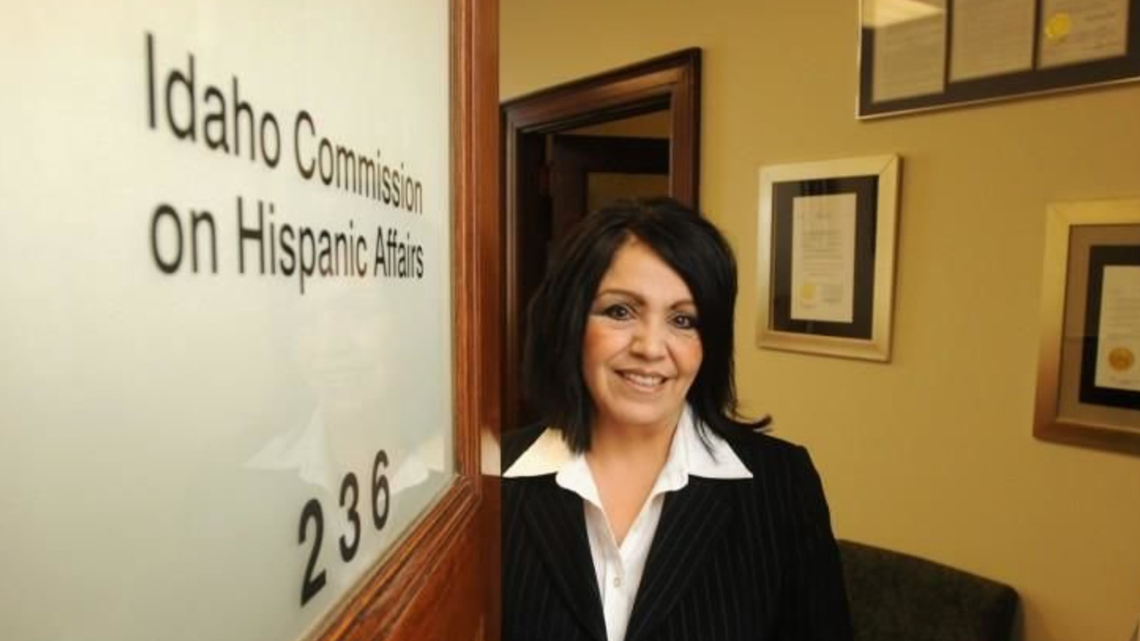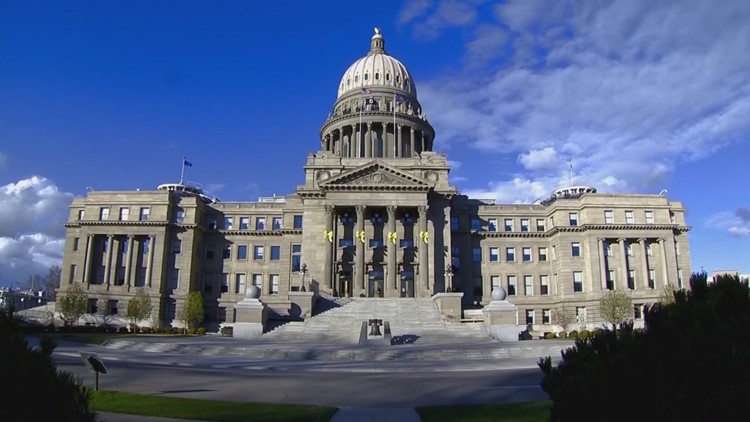BOISE, Idaho — With the 2020 legislative session beginning Monday, the Idaho Commission on Hispanic Affairs and the ACLU of Idaho are looking at potential legislation that impacts Latinos, the state’s fastest-growing minority group.
Latinos comprise 12% of the state’s population and 18% of public schools, according to the Idaho Commission on Hispanic Affairs data from 2017.
The Hispanic Affairs commission on Jan. 30 will host the Idaho Hispanic Legislative reception for legislators in the Zions Bank Building, according to a report in the Idaho Press.
Though Latino interests will be a priority for both the ACLU and the Idaho Commission on Hispanic Affairs, reporting from last year shows only one state legislator, State Sen. Michelle Stennett, D-Ketchum, identified as Hispanic or Latino, and that remains the case for the 2020 session.
In the meantime, here is a look at some of the commission’s and ACLU’s top issues heading into 2020:
EDUCATION AND HEALTH CARE
Between 2010 and 2016, Latinos accounted for 42% of the state’s public school enrollment growth, according to commission data.
As the state’s number of Latino students enrolled in public school grows, so does the achievement gap between Latino and non-Latino students, said Margie Gonzalez, executive director of the Idaho Commission on Hispanic Affairs. Education is the commission’s top priority for Latinos as the state heads into its 2020 legislative session, she said.


According to an ICHA report, during the 2015-2016 school year, the most recent year available, Latino students scored lower than non-Latino students on the Idaho Department of Education Idaho Reading Indicator test. At the end of third grade, 61% of Latinos were reading at grade level, compared with 76% of non-Latino students.
Gonzalez said, “We are starting to see good things happening in education in different parts of the state,” but there’s more work to do to bridge the achievement gap.
“We are starting to see dual-language programs, and school districts are starting early kindergarten classes that are going to help our children catch up,” Gonzalez said, adding that in many cases, “children are entering the school system already behind.”
The ICHA report also found Latino students, in grades three through 10, performed lower than non-Latino students on the Idaho Standards Achievement Test or ISAT, which tests students’ proficiency in English language arts, math and science.
About 46% of Latino students scored below the standard scores in math, compared to 28% of all other students.
Gonzalez said there has not been specific language developed for legislation around supporting Latino students, but there are legislators on the commission’s board who help keep the organization aware of what is going on in the legislative body.
“That is one of our challenges. Sometimes — even having legislators on our board — there is language being drafted that we don’t become aware of until it is already being discussed,” Gonzalez said.
Gonzalez also said health care will be a main focus for the commission this session. Data from the commission says Idaho Latinos make up 27% of the state’s uninsured individuals. About 37% of Idaho’s Latinos reported they did not have health insurance, and 54% reported they did not have dental insurance.
CRIMINAL JUSTICE AND EQUAL HOUSING
Criminal justice reform is a top priority this session for ACLU of Idaho, advocacy fellow Ruby Mendez-Mota said.
One focus of the organization is on addressing the barriers people face when looking for employment after being incarcerated. The ACLU plans to back a bill, the Fair Chance Employment Act, that would delay an employer’s questions about criminal history until later in the hiring process.
Idaho ranks third in the nation for the highest incarceration rates of Latino prisoners per 100,000, Mendez-Mota said, even though Latinos make up only 12.3% of the state’s population.
“Being Latinx comes with a lot of barriers,” she said. “Aside from having a criminal record, you can be discriminated against based on race.”
She said the proposed Fair Chance Employment Act would help reduce one of those barriers Latinos may face when looking for work after being incarcerated.
Sen. Cherie Buckner-Webb, D-Boise, plans to sponsor the bill, the Idaho Press previously reported.
Mendez-Mota also said the ACLU is poised to battle a potential bill that would expedite evictions in Idaho. She added that the bill would “disproportionately harm” vulnerable communities.
The bill came up last session and narrowly failed to pass the House. The bill from last session would have streamlined all evictions into a process that takes less than a month, no matter the reason for eviction.
“We expect to see that bill this year,” Mendez-Mota said. “It concerns us because it provides a burden on due process.”
Mendez-Mota said the ACLU is also tracking any legislative action around the diversity programming at Boise State University, though she said they haven’t heard of any potential legislation.
She also said they would be tracking any bills related to reproductive rights, abortion bans, sex education and other things that impact the LGBTQ community.
More from our partner Idaho Press: Caldwell couple visit Scotland, take local paper on trip
Watch more 'Idaho Politics'
See them all in our YouTube playlist here:



